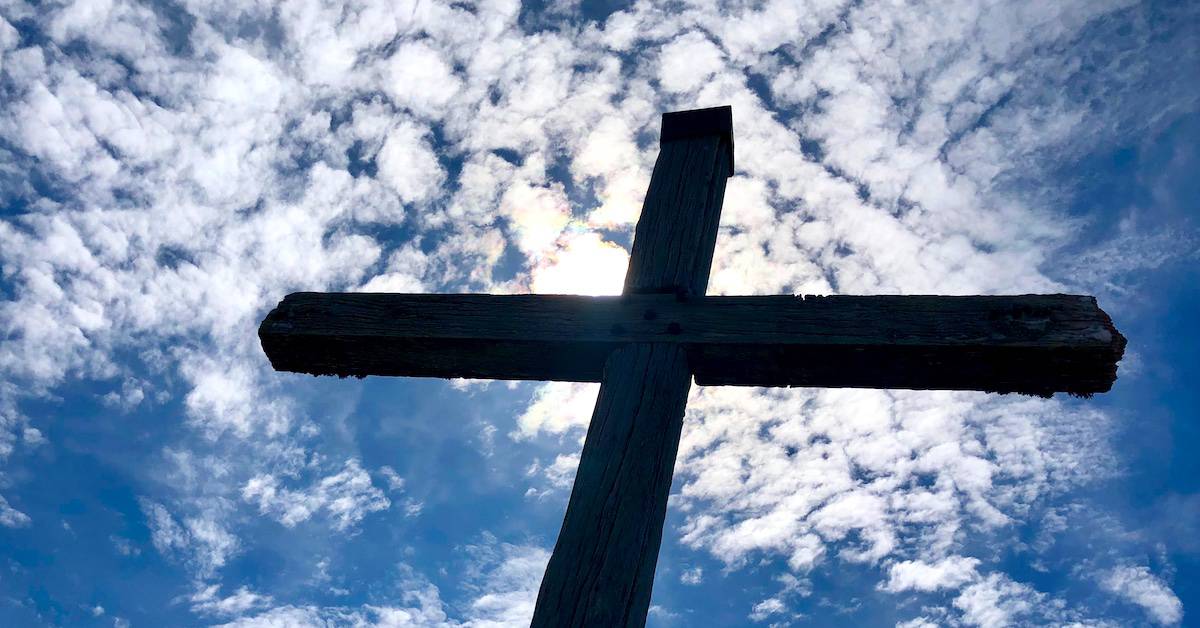It is horrifying that we took the beauty of the Gospel of Jesus Christ and used it to construct a sin-management system. Instead of freeing us from the power of sin, it only made us more captive to its longings and temptations.
I was preoccupied with my sin and failures most of my life, well into my forties. Most Christians I know today see their own sin and temptations as something they need to work on if they are going to get serious about their life in Jesus. Many fret over them, hoping they have confessed and repented enough, and can learn to try hard enough to defeat them, even though they’ve always been unsuccessful. They think their walk with God depends on it. And, yet they have it exactly backwards—proximity to God is not gained through sinlessness, our closeness to God sets us free from the power of sin.
What Jesus accomplished on the cross was the destruction of sin in his love. Now, we no longer need to be preoccupied with it or spend any effort trying to win over it by our own will-power. We are and always have been, powerless in sin. Jesus’s grace and forgiveness now allows us to be present with God even in the midst of our worst failure, so that his love can transform us from the inside out. It’s the ultimate freedom from sin, both from having to manage it every day and in experiencing his transforming power that frees us from it. Yes, I know it sounds too good to be true, but nothing else will lead us to a life of fullness in God.
Paul said in Romans 8 that a mind set on the flesh is death. That’s as much the mind seeking to resist the flesh as it is the mind indulging it. None of this takes away from the fact that sin destroys. Your sin dehumanizes you and exploits people around you. It isn’t pretty, but it does not distance God from you. He knows your frailties and he also knows that only his love can unravel the mass of hurt, ego, trauma, and insecurity that expresses itself in sin. Fight against sin and you’ll lose every time. Learn to live in the reality of his love and you’ll find the mind set on the Spirit to be life and peace, as Paul said it would be.
Yes, it is counterintuitive, but it does explain why centuries of trying to manage our sin for God has not produced greater righteousness among those who claim to follow God. Sin is as rampant in the so-called “church” as it is the world. Instead of helping people discover how to rely on his love, we bowed at the altar of human performance and it has failed us.
The third section of He Loves Me is designed to help people understand Jesus’s work on the cross so they will no longer be preoccupied with sin. Instead, they will relax into his love and discover how that love will reshape their lives and in doing so displace the power of sin to capture them. That’s the good news and it opens the door for us to live with Jesus and his Father without counting our sins and make sure we’ve confessed them all. They are forgiven. God’s not counting and you don’t need to either—not yours or your neighbor’s.
We will be discussing our freedom from sin this weekend in the He Loves Me Book Club, which will convene this Saturday, February 17, at 1:00 pm Pacific Standard Time. We will be focusing on Chapters 14 and 15 to understand what happened between a Father and his Son on the cross that opened up this amazing door for our fullness and freedom.
If you want to join us in this Zoom conversation, you can get details and the link by liking the Facebook Group Page, or if you are not a member of Facebook, you can write me for a link to be sent each time we meet. For those who just want to watch, we stream them live on my Facebook Author Page and leave the recording up after the conversation for others to hear. (You can find past ones by scrolling down on that page.)
Here’s one of my favorite excerpts from Chapter 14:
In the pristine beauty of the undefiled creation, Adam and Eve couldn’t find it in their hearts to trust God and walk away from their own desires. But in the agonizing atrocity of the cross and the utter darkness that overwhelmed him there, Jesus consciously and continuously yielded to his Father’s desire.
At any point in the process he could have stopped the torture, called for a legion of angels and wiped out those who were killing him. What an amazing act! I don’t know that I have ever willingly submitted to the darkest tragedies of my life. I rarely feel in control when circumstances turn desperate or when people with evil motives take advantage of me. If I could have called a legion of angels to fix any of my painful circumstances, I would have. I have endured the painful seasons of my life not because I chose to, but because I could not do otherwise. The only choice I had was whether to respond to them in a Godly way or a selfish way.
That he would endure such hostility against himself with the full freedom to end it at any weak moment makes me appreciate the cross that much more. As free choice got us into this bondage of sin, so Jesus’ free choice would walk us out of it. His example also reminds us that we are not victims either. Even though disgusting things might be done to us by others, we still have the freedom to overcome evil by putting our trust in him. He still redeems the darkest moments of life with the wonder of his grace.








Pingback: Losing our Consciousness of Sin | Lifestream – The Faith Herald
Thank you, Wayne. Your words took me on a trip down memory lane. Decades ago I read something in an Andrew Murray book that assisted me greatly in my Christian walk. I cannot recall the exact words, but it came down to this: When an individual tries to overcome sin, it is the flesh trying to overcome the flesh, which is the same as Beelzebub trying to drive out Beelzebub – an obvious exercise in futility. Those words helped me to understand that my ego’s feverish drive to become “holy” was no more spiritual than my old carnal self’s worldly ambition that manifested in all kinds of overt sinful pursuits. I had to learn that true spirituality was to relinquish the need for control and to learn the secret of faith – to trust him as my life instead of trying to labor to produce life. Years later I stumbled on a statement by Kierkegaard that confirms Murray’s words and had an equally powerful impact on my life: “God always creates ex nihilo – out of nothing”, Kierkegaard said, “which means before he can use something or someone, he must first reduce them to nothing.”
Thanks, Tobie. I love your thoughts here so much. It’s what we need to see to really live deeply in his life rather than try to produce it ourselves.